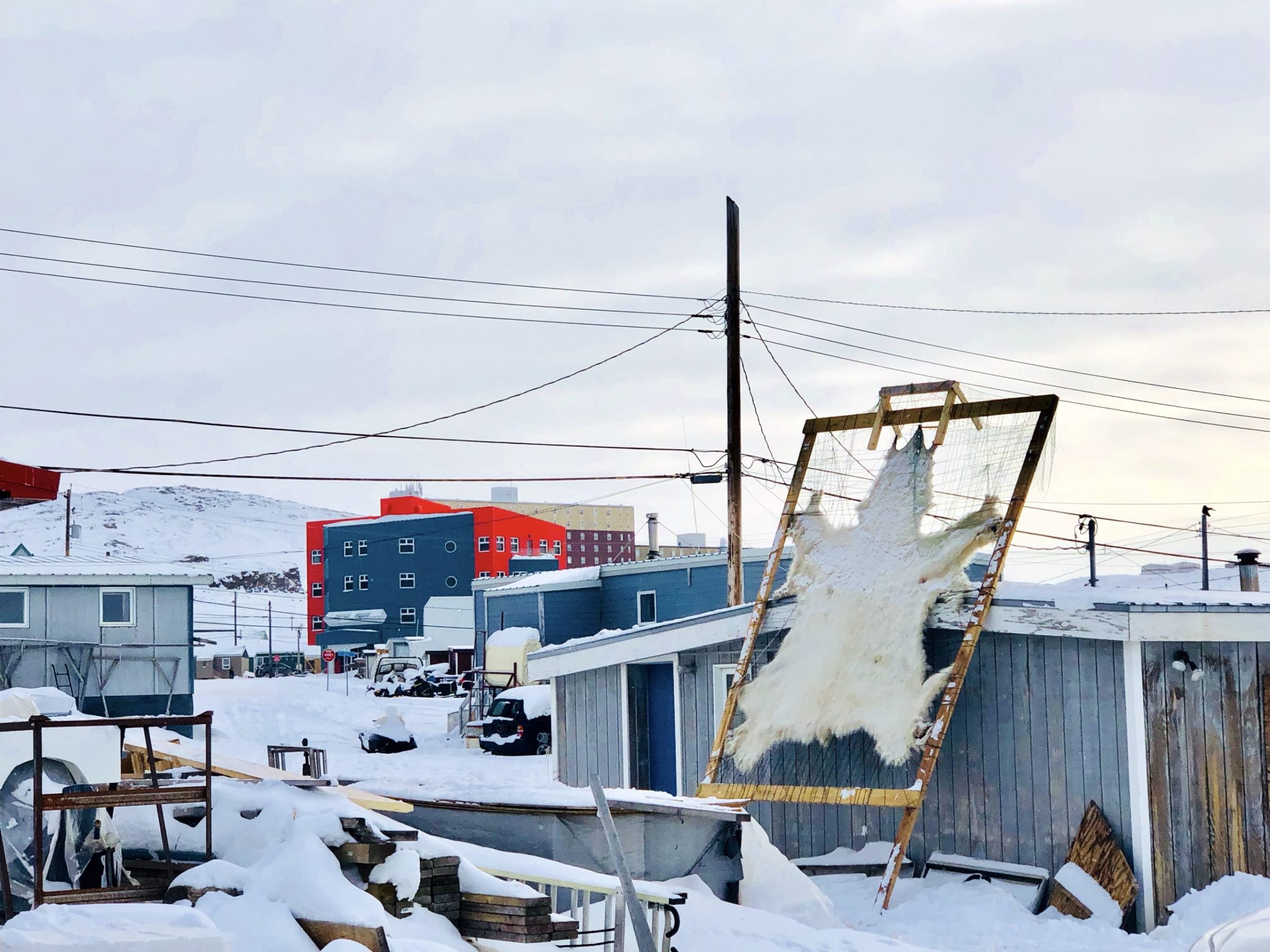Unsellable polar bear hides travel back from auction house to Nunavut
The market for polar bear fur has taken a dive.

About 300 polar bear hides that have been in storage at the Fur Harvesters Auction in North Bay, Ontario are heading back home to Nunavut.
Premier Joe Savikataaq, who is also the territorial environment minister, said March 1 in the Nunavut legislature that the polar bear hides couldn’t sell at auction due to the “low demand and low prices at auction.”
But Ed Ferguson, the wild fur buyer and grader for Fur Harvesters, said the hides are too small or not good enough to command prices that match the $3,000 subsidies the government paid hunters for the hides. That amount ends up being the auction house’s minimum price.
“Back when bears were selling for $15,000, they were giving these big advances,” he said of those subsidies.
But the market for polar bear fur has taken a dive, making many of the Nunavut hides unsellable. A good quality, 10-foot polar bear hide can still bring in $5,000, he said.
But many of the polar bear hides on their way to back to Nunavut “weren’t of the finest quality,” Ferguson said.
The polar bears may have been taken too early during the hunting season.
“They don’t have the nice fur on them,” Ferguson said.
“It just got to a point where we wouldn’t get money out of the bears and we couldn’t store them.”
Although at the right temperature, quality polar bear hides can stored for a long time, he said.
The auction house sold about 30 to 40 polar bear hides last year to private customers. It sells a large variety of wild furs, but doesn’t advertise that it sells polar bear due to pressure from the United States and animal activists who don’t want to see any polar bear trophy trade.
Grizzly bear furs continue to sell “like crazy,” Ferguson said, and there is always a market for black bear fur used in ceremonial hats.
About 80 higher quality polar bear hides from Nunavut will stay in North Bay, where Ferguson expects they will be sold at auction.
Once the other hides are back in Nunavut, hunters will be able to buy them back from the territorial government for the amount it originally paid for them.
The polar bear hides that aren’t bought back will be donated to non-profit organizations for projects or sold locally by the Department of Environment.